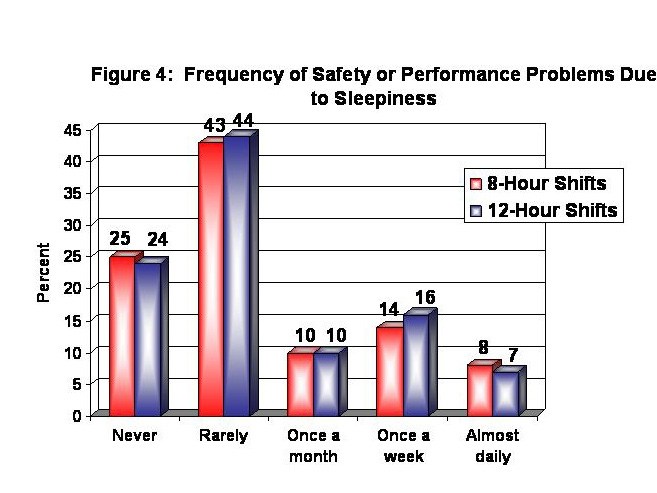Many managers have concerns about changing to 12-hour shifts. They worry that their employees won’t get enough sleep on long shifts, and the reduced alertness could lead to problems with safety and productivity.
To test this belief, we calculated the average daily hours of sleep when working different shift lengths using our database of over 20,000 shift worker surveys. The average daily hours of sleep for people working 8-hour shifts are shown in Figure 1. The average daily hours of sleep for people working 12-hour shifts are shown in Figure 2.


At first glance, it appears that the people working 12-hour shifts get less sleep than those on 8-hour shifts. But this is not the case over a span of several days or weeks, due to the fact that 12-hour shifts provide twice as many days off and employees sleep longer on their days off. Figure 3 shows the average hours of sleep over a four-week period. Regardless of whether you compare someone working day shifts only, night shifts only, or a rotating shift schedule, the average hours of sleep over the four week period is greater on 12s.
Figure 3. Average Hours of Sleep Over Four Weeks

There have been a number of articles written about safety risks with 8-hour shifts vs. 12-hour shifts. The results are mixed. Although our shift workers surveys rely on self-reported safety problems rather than documented incidents, the survey results suggest that longer shifts are at least as safe as 8-hour shifts, as shown in Figure 4.

Call Us and We Can Help
Call or text us today at (415) 763-5005 to discuss your operations and how we can help you solve your shift work problems. You can also complete our contact form and we will call you.

